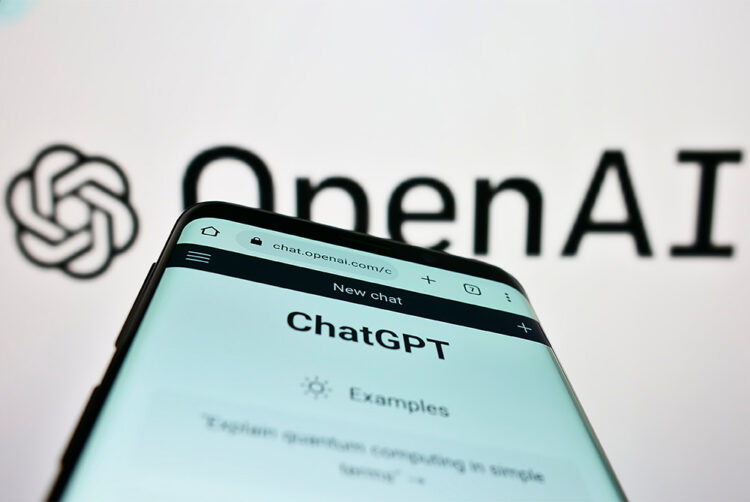How will GPT-4 impact the future of media?

Analysis
Industry experts are weighing the pros and cons of the quick pace at which chatbots are developing.
Just four months after OpenAI launched its artificial intelligence chatbot, ChatGPT, it already has a substantial update.
GPT-4, announced earlier this week, has a few new tricks up its sleeve. The bot is now more precise and accurate in its answers to questions, can describe images in detail, can ace standardised exams, and even has a (slightly) better sense of humour.
“[OpenAI is] demonstrating such speed in their product development that it almost feels like the world can’t catch its breath,” says James Parker, chief solutions officer at digital marketing company Jellyfish. “It’s as if the baby born before Christmas is already flying through puberty. […] It’s highly impressive and a signal of how our world could speed up in the near future.”
Creativity and copy at scale
The industry has grappled with difficult questions about how the chatbot might shape the future of media. Concerns over being made redundant by ever-improving AI are abundant, while proponents, such as Parker and Wavemaker’s global head of applied innovation Sarah Salter, see the tool as heralding in a new era of improved workflow; an impressive assistant that can help with everything from coming up with a creative pitch to streamlining the way we use online search for any number of queries.
“I think it would help scale the amazing and precious creativity our industry’s art directors, designers, and copywriters have, rather than replacing them,” Parker tells The Media Leader.
Publishers are meanwhile balancing whether to view the rise of chatbots as competition to the status quo, or useful tools to improve efficiency in an industry that is often looking to trim down costs. Reach has begun experimenting with using ChatGPT to help write the news, but others have yet to announce how they plan to formalise their use of the chatbot.
Like Parker, Joseph Teasdale, head of tech at Enders Analysis, is mostly sanguine about the prospects of GPT-4. “I’m optimistic that new AI tools will help make the process of workshopping ideas, drafting and editing smoother and more productive, letting creatives focus on what they do best: creating,” he says. But, there could still be detracting elements to the technology, adds Teasdale.
“If I have a worry, it’s for the marketing industries, where I don’t think the ability to produce unlimited copy will make us clearer communicators,” he says. “I can see a world where we’re all getting AI to produce longform prose out of bullet points, only for audiences to use that same AI to condense it back down to bullet points to make it readable. Hopefully the absurdity of that situation will force us to answer the question: do we need all this generic text?”
‘A disturbing lurch forward’?
Other worries are indeed abound. In a column for The Media Leader last month, weekly columnist Raymond Snoddy called the breakthrough “really scary”, and reflected that it brings up challenging questions around everything from misinformation to copyright infringement. “Despite understandable scepticism, there is a sense that with ChatGPT the world of media and information has taken a disturbing lurch forward with unpredictable consequences,” Snoddy wrote.
Search advertisers are still waiting to see how companies like Google and Microsoft look to monetise their respective chatbots beyond adding extra features to their existing products, but that hasn’t stopped critics from assuming that advertising is likely to play a big part in how chatbots will generate revenue for Big Tech.
Writing in The New York Times, columnist Ezra Klein asked: “What if Google and Microsoft and Meta and everyone else end up unleashing AIs that compete with one another to be the best at persuading users to want what the advertisers are trying to sell? I’m less frightened by a Sydney [ChatGPT’s alter-ego] that’s playing into my desire to cosplay a sci-fi story than a Bing that has access to reams of my personal data and is coolly trying to manipulate me on behalf of whichever advertiser has paid the parent company the most money.”
Immediate use cases
Brands are indeed looking to tinker with the technology to see in what ways it might assist them. The Media Leader columnist and head of futures at Omnicom Media Group UK Phil Rowley advises that brands ought to be trading on their own information on its products and services that is verified as accurate — and then use GPT-4 to provide a more engaging consumer interface for that raw data.
Rowley, who in his column today writes that AI may be a necessary tool for humanity if it wants to avoid hitting an “innovation wall”, adds that, speculation on the future of media aside, GPT-4 can also help brands in the near-term.
“An immediate use case that springs to mind is turbo-charging brands’ website chatbots, enabling them to answer questions accurately and fully, rather than the frustratingly irrelevant stock answers it gives to most consumer queries.”




